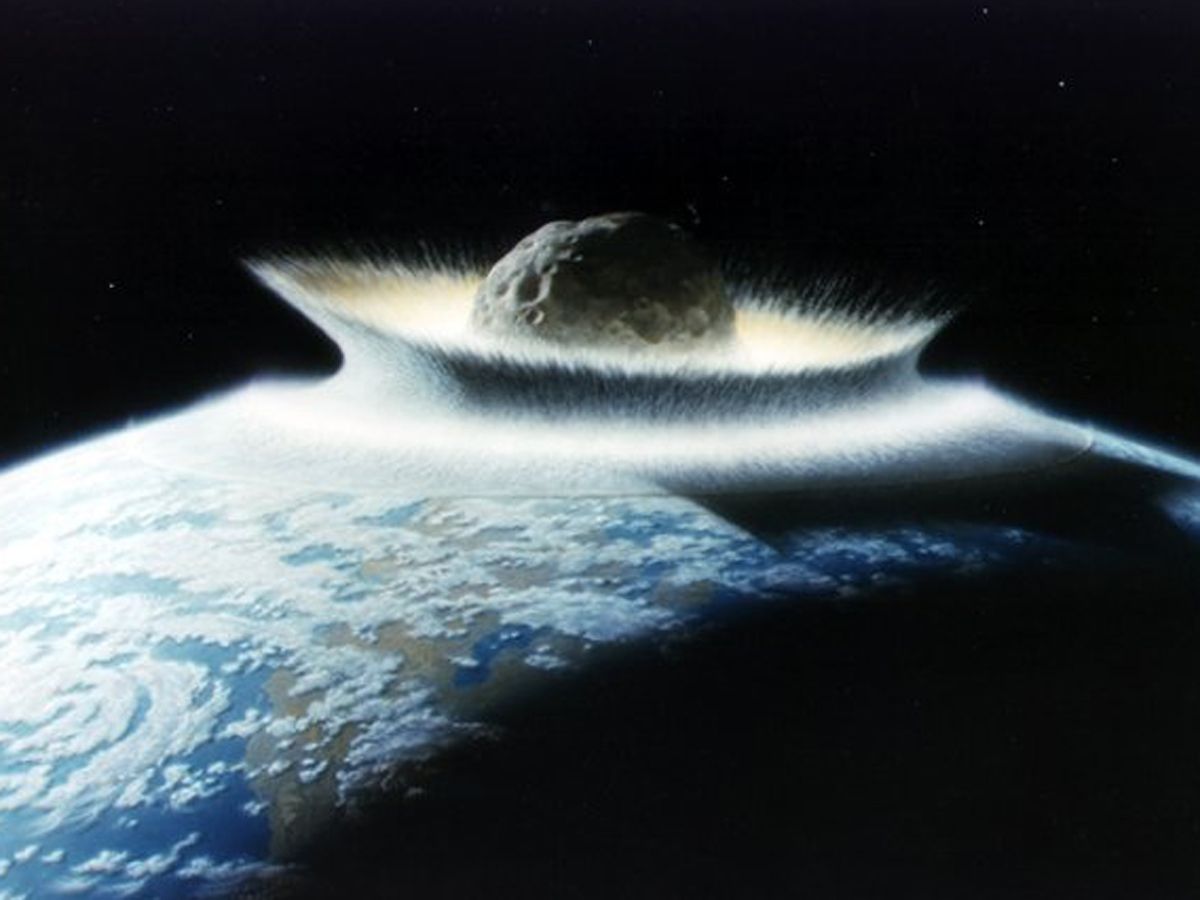
An asteroid wiped out the dinosaurs—and 80 percent of all animals on the planet—about 66 million years ago, but scientists are still arguing about precisely what made the impact so deadly, even to species on the other side of the planet. New calculations lay the blame on a global winter caused by climate-changing chemicals that the asteroid flung into the atmosphere when it slammed into Earth.
That's according to a new paper published in the journal Geophysical Research Letters, which argues that the asteroid, which was about seven miles across, released about 350 billion tons of sulfur dioxide and about 450 billion tons of carbon dioxide into Earth's atmosphere. That gas would have come from ocean water and rocks that vaporized during the collision.
That's more sulfur dioxide and less carbon dioxide than previous scientists had estimated, suggesting that the massive impact chilled the planet, rather than warming it up. With more carbon dioxide and less sulfur dioxide, temperatures might have risen and roasted the dinosaurs to death through the same type of climate change we are experimenting with today.
Instead, the prevalence of sulfur dioxide meant the impact cooled the planet. The chemical plays a similar role today when it and other tiny particles created by volcanic eruptions are they're propelled high enough, into the outer layer of the atmosphere. There, they can travel around the globe and seed clouds that reflect sunlight away from the planet, causing a slight chill. The carbon dioxide still would have warmed the Earth, counteracting the sulfur dioxide a little bit, but that effect takes much longer to kick in.
In the case of the asteroid 66 million years ago, the chill was anything but slight: Calculations published earlier this year suggest that even with much less sulfur dioxide production, temperatures may have plunged 47 degrees Fahrenheit—and that it took three decades for temperature to bounce back to where they had been previously.

The current paper incorporates new estimates of the angle at which the asteroid slammed into Earth, which are based on drilling that's been conducted on the crater it left behind in the ocean off the coast of Mexico.
Most theories scientists have posed about the extinction's immediate trigger include some sort of global climate change, but what direction has been in doubt. But even the climate link is still debated, with other scientists proposing, for example, that the extinction was caused by gigantic firestorms lit by debris from the impact that ignited as it re-entered the atmosphere.
Uncommon Knowledge
Newsweek is committed to challenging conventional wisdom and finding connections in the search for common ground.
Newsweek is committed to challenging conventional wisdom and finding connections in the search for common ground.
About the writer
Meghan Bartels is a science journalist based in New York City who covers the science happening on the surface of ... Read more





